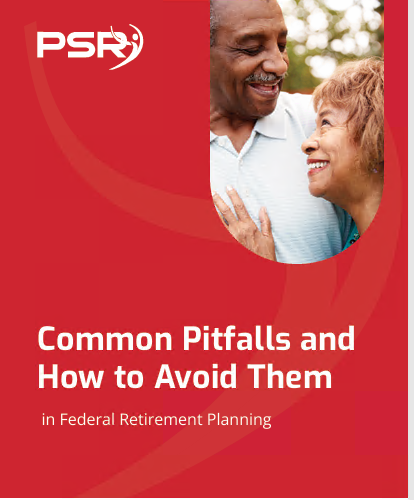Key Takeaways
-
Delaying Medicare enrollment beyond age 65 while still working can lead to higher premiums and late enrollment penalties, especially if your employer coverage doesn’t meet certain criteria.
-
Understanding how Medicare interacts with public sector employment and the Federal Employees Health Benefits (FEHB) Program is essential to avoid costly missteps during retirement planning.
Understanding the Medicare Clock at 65
Turning 65 triggers an automatic eligibility for Medicare. For most Americans, this marks a major healthcare milestone—but if you’re still employed in the public sector and covered by an employer-sponsored plan like FEHB, it’s not necessarily a clear-cut decision to enroll.
- Also Read: Divorce and Your Federal Pension—What Happens When You Split Assets and How It Could Affect Your TSP
- Also Read: What Happens to Your Federal Benefits After Divorce? Here’s the Lowdown
- Also Read: The Best FEHB Plans for 2025: Which One Fits Your Lifestyle and Budget the Best?
What Happens If You Delay Enrollment
If you choose to delay Medicare Part B because you’re still covered under your public sector employer’s plan, you need to make sure that plan is considered creditable coverage by Medicare standards.
Medicare defines creditable coverage as a group health plan offered by an employer with 20 or more employees. Most government employee plans, including FEHB, qualify. But you must actively prove it when you eventually enroll in Medicare.
Without proof of creditable coverage, Medicare will apply a late enrollment penalty—a 10% increase in your Part B premium for each full 12-month period you could’ve enrolled but didn’t. This penalty is permanent and added to your premium for life.
The Timing Trap: Enrollment Windows
If you’re still working at 65 and covered by a group health plan, your window to enroll in Medicare doesn’t close immediately. Instead, you qualify for a Special Enrollment Period (SEP) that allows you to sign up for Medicare Part B without penalty:
-
This SEP lasts for 8 months, starting the month after your employment ends or your employer coverage ends—whichever happens first.
However, if you miss this SEP and didn’t sign up during your Initial Enrollment Period (IEP) at 65, you’ll need to wait for the General Enrollment Period (GEP)—from January 1 to March 31 of each year. In this case:
-
Your coverage starts July 1, leaving you without Medicare for months.
-
You’ll likely face late enrollment penalties.
Why Some Public Sector Workers Still Sign Up at 65
Even if your FEHB or other government health plan is solid, some public employees choose to enroll in Medicare Part A at 65. Why?
-
Part A is usually premium-free if you or your spouse paid Medicare taxes for at least 40 quarters.
-
It may act as secondary coverage to reduce out-of-pocket costs under FEHB.
But others delay Part B to avoid paying an extra premium while still covered under their employer plan. This decision requires weighing costs now vs. later.
Medicare Part B Premiums Rise With Time and Income
What many public sector employees don’t realize is that delaying Medicare Part B can mean paying more for it later—not just due to late penalties, but also because of rising premiums linked to income.
Medicare Part B premiums are income-based. The government looks at your tax return from two years prior. For 2025, that means your 2023 Modified Adjusted Gross Income (MAGI) determines your rate.
If you worked past 65 and had a high salary in 2023, your Part B premium in 2025 could land you in a higher bracket—even if your income drops after you retire. This makes delaying enrollment financially painful for many retirees.
You can file an appeal with Social Security using form SSA-44 if you’ve had a life-changing event like retirement, but there’s no guarantee it will fully reduce your premium.
Employer Plans Don’t Always Work Well with Medicare
While FEHB plans are considered creditable coverage, they weren’t built to integrate with Medicare by default. That can create inefficiencies or gaps in coverage:
-
Some FEHB plans coordinate benefits well with Medicare, reducing costs for enrollees who have both.
-
Others may duplicate coverage or become less cost-effective without Medicare.
This coordination becomes particularly important once you retire. Most retirees find that enrolling in both FEHB and Medicare Parts A and B results in better overall coverage with fewer out-of-pocket costs. But this only works well if timed right.
Retiring After 65: Your Enrollment Checklist
If you plan to retire after age 65, don’t wait until the last minute to act. Here’s a checklist to follow:
-
Confirm your employer coverage is creditable (usually true for FEHB).
-
Enroll in Medicare Part A at 65 if you’re not contributing to an HSA.
-
Track your Special Enrollment Period—you have 8 months after your employer coverage or job ends.
-
File proof of creditable coverage when you apply for Part B to avoid penalties.
-
Reassess your FEHB plan—you may want to switch to a lower-cost option once Medicare becomes your primary payer.
The Hidden Cost of Staying on FEHB Alone
Some government employees assume they can just stay on FEHB for life and skip Medicare entirely. While FEHB remains available, this strategy may backfire:
-
If you miss your SEP window, you face delays and lifelong penalties.
-
FEHB premiums don’t decrease just because you retire—they may increase.
-
You may lose out on the cost-sharing advantages that come from pairing Medicare Part B with your FEHB plan.
In 2025, many FEHB plans offer incentives like reduced deductibles and coinsurance for Medicare enrollees. Not enrolling means paying full cost-sharing amounts when you don’t have to.
What If You’re Still Working at 70?
By the time you reach 70, the pressure to make Medicare decisions increases. There’s no benefit to delaying enrollment past this age:
-
Your SEP ends 8 months after your employment or employer coverage ends—whichever comes first.
-
You continue accumulating late enrollment penalties the longer you wait.
Some workers are surprised to learn that even though they’re covered under FEHB and still working, the cost of delaying Part B rises every year due to the penalty structure and income-based premiums.
Plan Smart Now to Pay Less Later
The decision to delay Medicare isn’t inherently wrong—but doing so without a clear understanding of how FEHB, Part B premiums, penalties, and enrollment periods interact could leave you with significantly higher costs in retirement.
Speak with your benefits office and consider consulting a professional to create a coordinated transition plan. The choices you make at 65 don’t just affect your current paycheck—they shape your future healthcare expenses for life.
Don’t Let Medicare Mistakes Shape Your Retirement
Staying employed past 65 in the public sector can be a smart move—but only if you make the right Medicare choices along the way.
Review your FEHB coverage, assess the need for Part A and B, and understand how income, penalties, and enrollment periods will affect you.
For personalized guidance, connect with a licensed professional listed on this website who can help you time your Medicare transition wisely and avoid long-term financial pitfalls.












